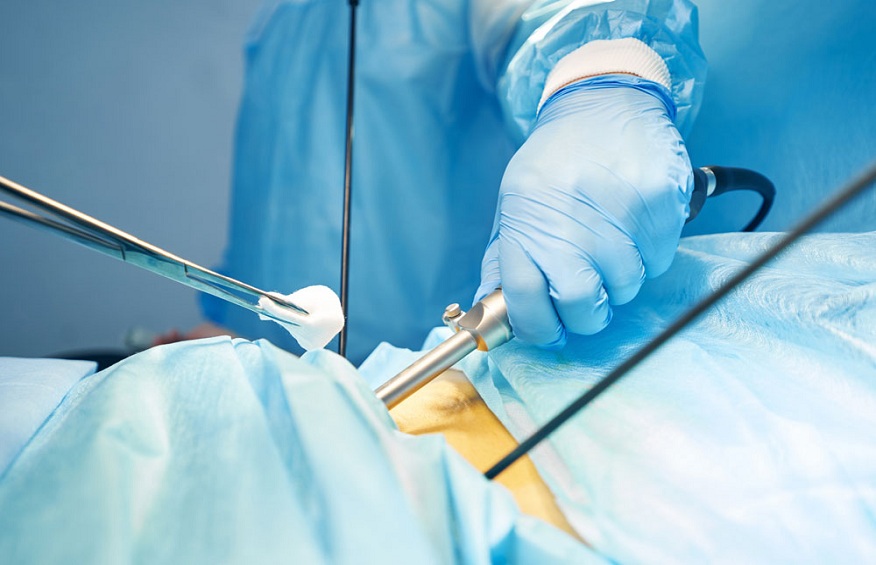Beyond Diagnosis: Therapeutic Applications of Endoscopy
3 min read
In the realm of modern medicine, endoscopy has evolved far beyond its traditional diagnostic role, emerging as a powerful therapeutic tool that significantly impacts patient care. This article explores the multifaceted therapeutic applications of endoscopy, shedding light on how this minimally invasive procedure goes beyond mere diagnosis to actively contribute to improved patient outcomes.
Understanding Endoscopy: A Brief Overview
Endoscopy, a minimally invasive medical procedure, involves the insertion of a flexible tube with a light and camera through natural body openings or small incisions. Originally designed for diagnostic purposes, endoscopy has expanded its scope to encompass a myriad of therapeutic interventions across various medical specialties.
Endoscopy in Gastroenterology: Treating from Within
Endoscopic Polypectomy and Mucosal Resection
Endoscopy has revolutionized the management of gastrointestinal conditions by enabling the removal of polyps and lesions directly from the digestive tract. Through endoscopic polypectomy and mucosal resection, gastroenterologists can treat precancerous growths and early-stage cancers, mitigating the need for more invasive procedures.
Esophageal Dilatation and Stent Placement
In cases of esophageal strictures or narrowing, endoscopy offers a therapeutic solution through dilatation procedures. Additionally, the placement of stents during endoscopy provides relief by restoring luminal patency, serving as an effective intervention for conditions like esophageal cancer or strictures.
Endoscopy in Respiratory Medicine: Navigating Pulmonary Challenges
Endobronchial Interventions
Respiratory medicine has embraced endoscopy for endobronchial interventions, enabling targeted treatments for conditions such as lung cancer, bronchial stenosis, and obstructive airway diseases. The ability to access and visualize the bronchial tree allows for precise interventions, reducing the invasiveness of traditional surgical approaches.
Pleuroscopy and Thoracic Interventions
Endoscopic techniques extend into the thoracic cavity, allowing pulmonologists to perform pleuroscopy for the evaluation and treatment of pleural diseases. This includes the drainage of effusions, pleurodesis, and the management of pneumothorax, presenting less invasive alternatives to conventional thoracic surgeries.
Endoscopy in Gynecology: Advancing Women’s Health
Hysteroscopic Procedures
Endoscopy plays a pivotal role in gynecological therapeutics through hysteroscopic procedures. This includes the removal of polyps, fibroids, and the treatment of intrauterine adhesions. The minimally invasive nature of hysteroscopy reduces recovery times and enhances patient comfort compared to traditional surgical approaches.
Endoscopic Treatment of Endometriosis
Endometriosis, a common gynecological condition, can be effectively managed through endoscopic interventions. Surgeons can visualize and excise endometrial implants, providing relief from symptoms such as pelvic pain and infertility. Endoscopic surgery minimizes the impact on surrounding tissues, preserving fertility prospects for affected individuals.
Innovations in Endoscopic Surgery: Robotics and Beyond
Robotic-Assisted Endoscopic Surgery
Technological advancements have propelled endoscopy into the era of robotic-assisted surgery. Integrating robotic systems enhances precision, control, and dexterity during endoscopic procedures. This evolution represents a significant stride in therapeutic applications, allowing for complex interventions with greater accuracy.
Transluminal Endoscopic Surgery
Breaking new ground, transluminal endoscopic surgery explores innovative ways to access internal organs without external incisions. Through natural orifices, surgeons can perform therapeutic procedures, reducing the impact on patients and ushering in a new era of minimally invasive interventions.
Future Frontiers: Emerging Therapeutic Applications
Endoscopic Submucosal Dissection (ESD)
In gastroenterology, the evolving field of endoscopic submucosal dissection (ESD) allows for en-bloc resection of larger lesions with increased precision. This technique holds promise for treating early-stage cancers in the gastrointestinal tract, providing an alternative to more invasive surgical procedures.
Nanotechnology Integration
The intersection of endoscopy and nanotechnology opens new possibilities for targeted therapeutic interventions at the molecular level. Nanoparticles delivered through endoscopic procedures hold potential for localized drug delivery, personalized medicine, and precise treatments for conditions ranging from cancer to inflammatory disorders.
Paving the Way for Therapeutic Excellence
Endoscopy has transcended its diagnostic origins, emerging as a therapeutic powerhouse across diverse medical disciplines. From gastroenterology to respiratory medicine and gynecology, the therapeutic applications of endoscopy continue to redefine treatment paradigms, offering patients effective solutions with reduced invasiveness and enhanced recovery. As technology advances and medical expertise evolves, the future holds even more promising prospects for endoscopic therapeutics, fostering a new era of patient-centered care.





